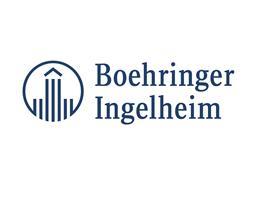Boehringer Ingelheim shares how it is addressing healthcare inequalities in cancer care, with a particular emphasis on treatment accessibility, genomic testing, and standardising the management of rare cancers.
Boehringer Ingelheim has provided financial support as part of a sponsorship package to the HSJ Cancer Forum. This thought leadership article was included as part of the sponsorship of the HSJ Cancer Forum, which also included involvement in a panel of NHS cancer stakeholders. The content of this article has been developed solely by Boehringer Ingelheim.
Sponsored and produced by
Reducing unwarranted variation in access to cancer treatments
As the cornerstone of NHS strategy, reducing healthcare inequalities has been a recurrent issue for many years. With an emphasis on the postcode lottery of care, healthcare systems have a duty to develop strategies and regulations that will successfully address this colossal issue concerning access.
Instead of “natural geographic factors” like the time or distance to chemotherapy centres, a literature review on regional variation in chemotherapy use in the UK found that the cause of the geographical variation appeared to be related to healthcare boundaries, such as the cancer network and strategic health authority level, which are associated with policy makers, commissioners, and providers.1
Moreover, there are still notable differences in the rate at which patients can obtain new medications for systemic anti-cancer treatments. Nine provider trusts adopted novel cancer medications within a month of the National Institute for Health and Care Excellence’s approval, whereas nine other organisations took more than a year, according to Lord Darzi’s 2024 evaluation.2 Such a mismatch is inappropriate since it contravenes the universal care principles and is inherently unjust to patients.
What are the underlying causes for this variation and what can be done about it?
Boehringer is spearheading a nationwide initiative to identify the underlying factors behind the variation that Lord Darzi referenced. To do this, the first step will be to obtain data on how long it takes for a new cancer drug to be adopted either through the Cancer Drug Fund (CDF) or regular commissioning.
To analyse the mechanisms causing the variation and create a report with suggestions on how to tackle the obstacles, the second half of the project will entail bringing together cancer stakeholders, including commissioners, pharmacists, patient organisations, and others.
Finding the national arrangements, service models, and practices that facilitate the quick adoption of novel cancer treatments can serve as a model for best practices to advance the system and provide patients nationwide with equal, quick, and fair access.
Access to genomics testing
Boehringer Ingelheim is one of the corporate sponsors of the UK Lung Cancer Coalition (UKLCC). As part of the sponsorship, Boehringer Ingelheim was represented on the communications group that was consulted during the development of the report entitled Faster Testing, Better Outcomes: Genomic Testing in Lung Cancer. The report itself was independently developed and approved by the UKLCC.
This report emphasises the urgent need for faster genomic testing in lung cancer to ensure timely and targeted interventions by recommending that the delay between a lung cancer patient’s biopsy and the results of their genomic test should not exceed 14 days.
National consensus led standardisation of the diagnostic and clinical management of lung large cell neuroendocrine carcinoma (L-LCNEC) patients4
This collaboration between Boehringer and The Christie is to establish an expert-led consensus that will specify the procedure for diagnosing L-LCNEC and treatment recommendations before being added to the National Lung Cancer Audit Database. The collaboration will enable national diagnostic consensus to accelerate accurate diagnosis and access to targeted interventions, highlighting Boehringer’s dedication to better clinical, equitable and less unwarranted variation in cancer care.
Job bag number: NP-GB-105834
Date of preparation: May 2025
References
1. Chamberlain C, Owen-Smith A, Donovan J, Hollingworth W. A systematic review of geographical variation in access to chemotherapy. BMC Cancer. 2015 Dec 31;16(1). Accessed 27/01/2025
2. Darzi A. Independent Investigation of the National Health Service in England. UK government website. 2024 Sep. Accessed 27/01/2025
3. UKLCC. Faster Testing, Better Outcomes Genomic Testing in Lung Cancer. UKLCC website. 2025 May 7. Accessed 27/01/2025
4. Boehringer Ingelheim. Christie NHS Foundation Trust Executive Summary 2025. Boehringer Ingelheim website. 2024 November. Accessed 27/01/2025


























